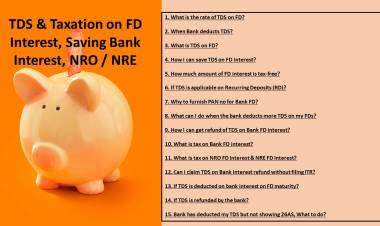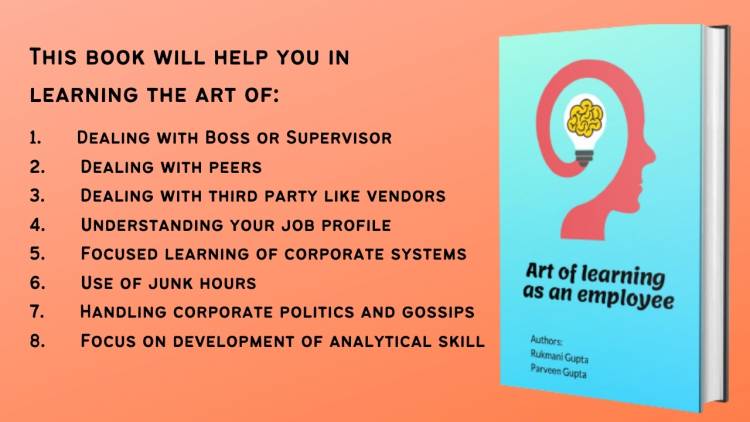The Stock Market for Beginners!!!
The Stock Market for Beginners!!!
We all must have heard stories about people earning millions of rupees from the stock market or people becoming bankrupt due to trading in the stock market and so on. Ever wondered why do these two extreme cases happen and how could we benefit from the market?
People have a lot of myths like “stock market is a gamble”, only rich people enter the market, one can become millionaire in a day, the stock market is a source of multiplying money to 10 times and so on. So even if you think the same then I would like to ask you to erase this memory because stock market is an “in-depth study of economy, sector, companies”. Various kind of research is performed on a stock before buying or selling it.
So let us begin with what exactly the market is and what are the important factors we need to know before entering the market!!
Investment Requirement:
First and most important thing is we must have a clear mindset regarding what is our motive and goals for entering into the market and our risk-taking capacity.
Due to the continued rise in inflation and high prices, it becomes difficult for an individual to sustain the existing lifestyle. So, it has become a need of a person to search for an alternative source of income to live a financially comfortable and secure life.
One type of investment could be the stock market as it provides lucrative returns. Although stock market investment is risky, it can be profitable if investment decisions are taken with proper due diligence. It is important to understand the basics, what are stocks, how the stock market works, and who regulates the market.
What are Stocks?
A stock is a type of security that depicts the state of ownership in a corporation and also has a claim on part of corporation’s earnings and assets. It is termed as equity because it represents ownership in the business which means “ownership in profits as well as loss”.
How do Stock Process Works?
There are two types of markets: Primary and
Secondary Market
Primary Market:
A company enters primary markets to raise capital. If the company is selling shares for the first time, it is called as Initial Public Offerings (IPO).
Secondary Market:
Once new securities are issued in primary market, later these shares are traded through exchange on secondary market. It gives a chance for investors to exit or enter in the stocks. Secondary market is exchange oriented where an investor can buy and sell share from one another at the prevailing market price.
Normally, these transactions are conducted using an intermediary, who can facilitate the process.
Do we have regulators for these processes?
Due to risky nature of stock market there is a need for regulator to protect the investors. The Security and Exchange Board of India (SEBI) is an autonomous body which is mandated to oversee the functioning of secondary and primary markets in India since 1988.
SEBI is responsible in protecting the rights and interests of investors in stocks, ensuring smooth trades, promoting regulation and development of the stock market and creating fair market for all investors.
Common Terminologies used in stock Market!
Dividends: A share is a portion of the company and when the company makes profits, you being a part owner of the company often receive a share of your profit which is termed as dividends. Every year, companies distribute a part of their profit to investors and it is known as dividends. For investors holding shares for many years, dividend can be a source of income for them.
Long: Having a long position in a security means that you own the security and investors are positive price of the stock will increase in future.
Short Selling: A short selling of stock means the sale of a stock you do not own. Investors who believe that the price of the stock is going to fall they enter into the position of short sell and buy the stock at lower price. Hence, making profit from the difference between the Price of stock sold and bought.
What are Bull and Bear Markets?
Markets are termed as ‘bull’ or ‘bear’ markets. These names are derived from the manner in which these animals attack their opponents. A bull shoves its horns into the air, and bear hits its paws down.
These actions are similar to the movement of a market: if stock prices are upwards trending, it is termed as a bull market; if the prices are downward trending, it is termed a bear market.
Bulls and bears are two sides of one coin.
How Does Trade Takes Place?
When one investor is willing to buy a quantity of stock and another one is willing to sell the same quantity of stock at the same price and at the same time then a trade takes place. Two-way price quotation indicates the best price at which an investor is willing to buy and another one is willing to sell the stock at a given point of time. The “bid price” represents the maximum price that a buyer is willing to pay for a security and the “ask price” represents the minimum price that a seller is willing to take for that same security.
What Is Insider Trading?
Insider trading is 'the shares traded based on the information or knowledge which is not available to the public domain’. It is illegal to trade in particular security after receiving 'tips' of confidential information about the company.
Insider Trading is mostly done by corporate personnel, traders and brokers. To regulate and control the same, the company’s management has to report the information of their trades to the exchange.
For example:
- Executive of the company purchases the share just after taking the decision of acquisition. This is “illegal” because the information is not publicly available and once the information is made available to public the prices of the shares may tend to go up.
- Executive of the company purchases the share after publicly announcing the information of acquisition is “legal” because the information is publicly available and the stock has been taken on the basis of publicly available news.
 Download APP
Download APP











































